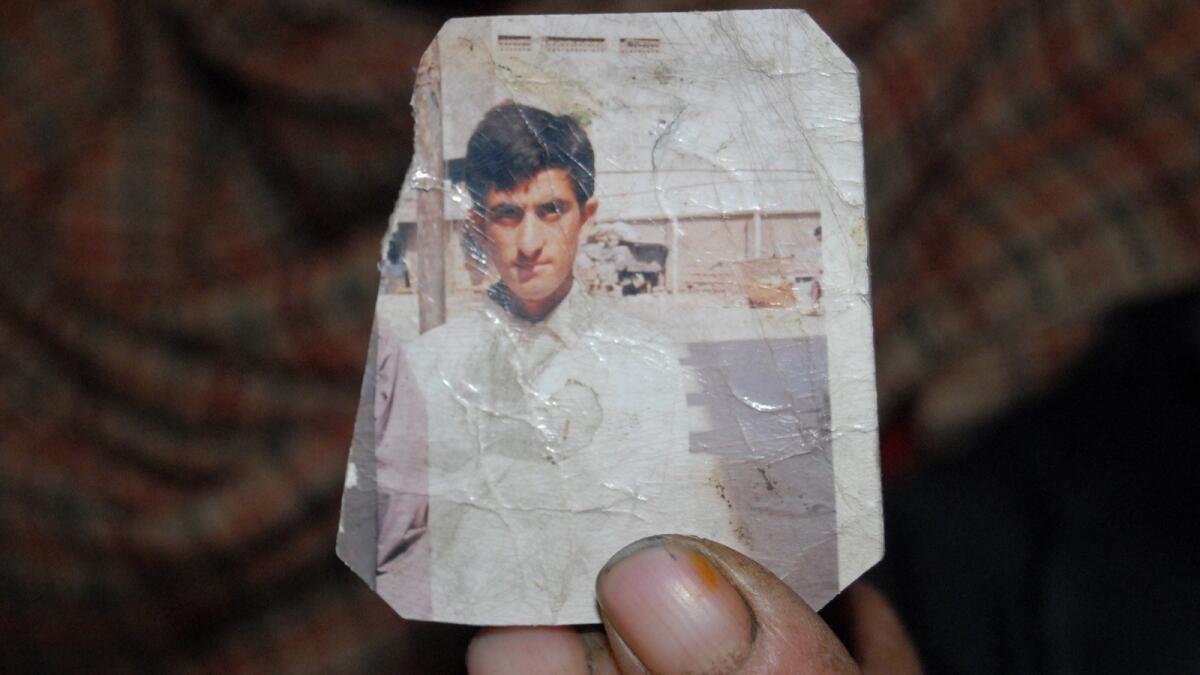4th reprieve granted to Pakistani condemned as teen for murder

One of Shafqat Hussain’s parents holds a photograph of him.
Pakistan granted a fourth reprieve Tuesday to a man set to be executed for a murder for which he was convicted as a teenager in a case that has drawn widespread condemnation from human rights groups.
The Pakistani Supreme Court spared Shafqat Hussain, now 24, just hours before he was due to be executed, family members said.
Lawyers and family members said that Hussain, who was arrested and sentenced to death in 2004 for the kidnapping and death of a 7-year-old boy, was “tortured into confessing” and that his body still bears scars from the beatings he received from police.
Family members were grateful that Hussain’s life was spared but said they would continue to press for his case to be reopened.
“We are thankful to international and local organizations which supported us,” said Hussain’s elder brother, Gul Zaman, who called on authorities to decide the case fairly and not sentence Hussain to death.
The last-minute decisions “should be stopped. We are neither among living nor among dead. It’s like walking on a tightrope all the time,” Zaman said.
Amnesty International has called the proceedings a “farce” and said Pakistani authorities have failed to establish that Hussain was an adult at the time of the crime. The Interior Ministry has claimed that he was an adult, even though the age of majority is 18 in Pakistan.
“Sentencing a juvenile offender to death, let alone executing him, is a clear violation of both international and Pakistani law,” David Griffiths, Amnesty International’s deputy Asia Pacific director, said before the execution was halted.
The youngest of seven siblings from the Pakistani-administered portion of Kashmir -– the disputed mountain territory along the Indian border -– Hussain was too poor to afford a good lawyer in the early stages of his case, family members said. His mother has not been able to visit him in jail in Karachi since 2006 due to financial constraints.
Pakistan has executed at least 150 people since the government lifted a moratorium last December. Thousands more people remain on death row, but local and international human rights groups have raised questions about the use of torture and fairness of trials in Pakistan’s justice system.
Sahi is a special correspondent. Staff writer Bengali contributed to this report from Mumbai, India.
More to Read
Sign up for Essential California
The most important California stories and recommendations in your inbox every morning.
You may occasionally receive promotional content from the Los Angeles Times.











